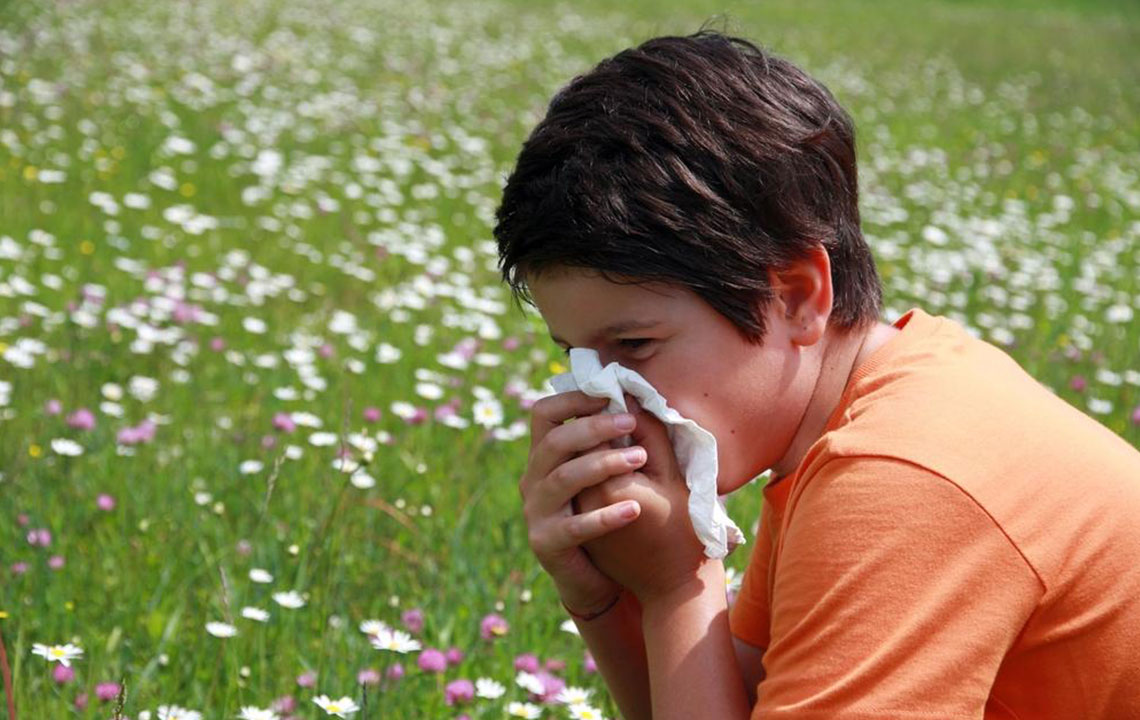Comprehensive Guide to Allergy-Induced Cough: Symptoms, Causes, and Effective Treatments
This comprehensive guide explores allergy-induced cough, focusing on symptoms, triggers, and effective treatment options. Understanding the causes such as pollen, dust mites, and pet dander, along with management strategies including home remedies and medical treatments, is vital for prevention and relief. Timely diagnosis and lifestyle adjustments can significantly reduce persistent cough episodes and improve respiratory health, providing lasting comfort for allergy sufferers.

Comprehensive Guide to Allergy-Induced Cough: Symptoms, Causes, and Effective Treatments
An allergy-induced cough is a common respiratory condition triggered by exposure to specific allergens. Unlike typical cold-related coughs, which are often temporary and associated with viral infections, allergy coughs tend to persist as long as the individual remains exposed to the triggering substances. Recognizing this kind of cough is essential for effective management and relief. Proper diagnosis and treatment can prevent complications and improve quality of life. This detailed guide covers the symptoms, causes, and proven remedies for allergy-induced cough, helping sufferers understand and address their condition comprehensively.
Understanding the Symptoms of Allergy-Induced Cough
Allergy-related coughs manifest through a variety of symptoms that often overlap with other respiratory conditions, making diagnosis a bit challenging. However, certain key indicators can help distinguish allergy coughs from colds or influenza. Since allergens are the primary culprits, the cough tends to be persistent and continues as long as there is ongoing exposure.
Typical symptoms include:
Sudden onset of coughing without warning
Persistent episodes that last from a few minutes to hours
Recurring coughing spells that can occur randomly throughout the year
Unlike cold-associated coughs, which are mostly prevalent during the winter months, allergy-induced coughs can strike at any time of year, depending on the presence of allergens such as pollen, dust mites, mold, or pet dander. Moreover, symptoms often accompany nasal congestion, sneezing, a runny nose, and itchy or watery eyes. In some cases, individuals might experience throat irritation or mild wheezing. The duration of an allergy cough varies significantly—from a few minutes to several days—depending on the level of allergen exposure and the efficacy of the treatment.
Common Causes of Allergy-Induced Cough
Understanding what triggers an allergy cough is essential for effective prevention and treatment. Several environmental and lifestyle factors contribute to the development of allergic reactions leading to coughing:
Pollen: Tree, grass, and weed pollens are prevalent causes, especially during specific seasons like spring and summer.
Dust Mites: These microscopic creatures thrive in bedding, upholstery, and carpets, aggravating indoor allergy symptoms.
Mold: Damp environments foster mold growth, which can trigger coughing and other allergy symptoms.
Pet Dander: Cats, dogs, and other furry pets release dander that can cause allergic reactions.
Environmental Pollutants: Increased air pollution from vehicle emissions and industrial activities can irritate the respiratory system, heightening allergy sensitivity.
Inhaled Irritants: Strong odors from perfumes, cleaning products, and household chemicals may provoke reactions in sensitive individuals.
Food Allergies: Certain foods like shellfish, nuts, or dairy can induce allergic reactions that sometimes involve cough and throat irritation in susceptible persons.
People with pre-existing respiratory conditions such as asthma or bronchitis are more likely to develop coughs triggered by airborne allergens. For these individuals, allergen exposure can worsen their symptoms, leading to more severe respiratory issues if left unmanaged.
Effective Management and Treatment Strategies for Allergy Cough
Timely intervention is crucial in controlling allergy symptoms and preventing complications such as secondary infections or worsening of pre-existing conditions. The management plan often involves a combination of lifestyle modifications, medical treatments, and environmental controls.
Self-care and Home Remedies
For mild allergy coughs, some home remedies can provide relief:
Keeping indoor air clean by using HEPA filters
Regularly washing bedding and curtains to reduce dust mites
Using saline nasal sprays to flush out allergens
Maintaining good indoor humidity levels to prevent mold growth
Avoiding exposure to strong perfumes, cleaning chemicals, and tobacco smoke
Additionally, staying indoors during peak pollen seasons, wearing masks outdoors, and keeping windows closed can significantly reduce allergen contact. Drinking plenty of fluids helps soothe irritated throats and promotes mucus clearance.
Medical Treatments and When to See a Doctor
If symptoms persist despite home management or worsen, it is imperative to seek medical advice. Healthcare professionals may recommend:
Antihistamines to block allergic responses
Decongestants to reduce nasal swelling
Corticosteroids in nasal spray form for inflammation control
Leukotriene receptor antagonists for long-term allergy management
Immunotherapy (allergy shots) for severe or persistent cases
Doctors might perform allergy testing to pinpoint specific triggers, enabling targeted avoidance strategies. In some cases, an inhaler or nebulizer might be prescribed if there's associated wheezing or bronchial constriction.
Preventive Measures and Long-term Management
Preventing allergy-induced cough involves minimizing exposure to allergens and adopting long-term strategies that reduce hypersensitivity. These include:
Regular cleaning and dusting of living spaces
Using allergy-proof bedding covers
Maintaining proper ventilation and humidity levels
Monitoring pollen forecasts and planning outdoor activities accordingly
Following prescribed medical treatments diligently
Beyond medications, lifestyle adjustments such as quitting smoking, reducing exposure to outdoor pollutants, and choosing hypoallergenic products can contribute significantly to long-term symptom control.
In summary, recognizing allergy-induced cough early and adopting comprehensive management strategies can greatly improve the quality of life for allergy sufferers. With appropriate treatment and preventive measures, individuals can reduce their discomfort and avoid complications, enabling a healthier, more comfortable living environment.





